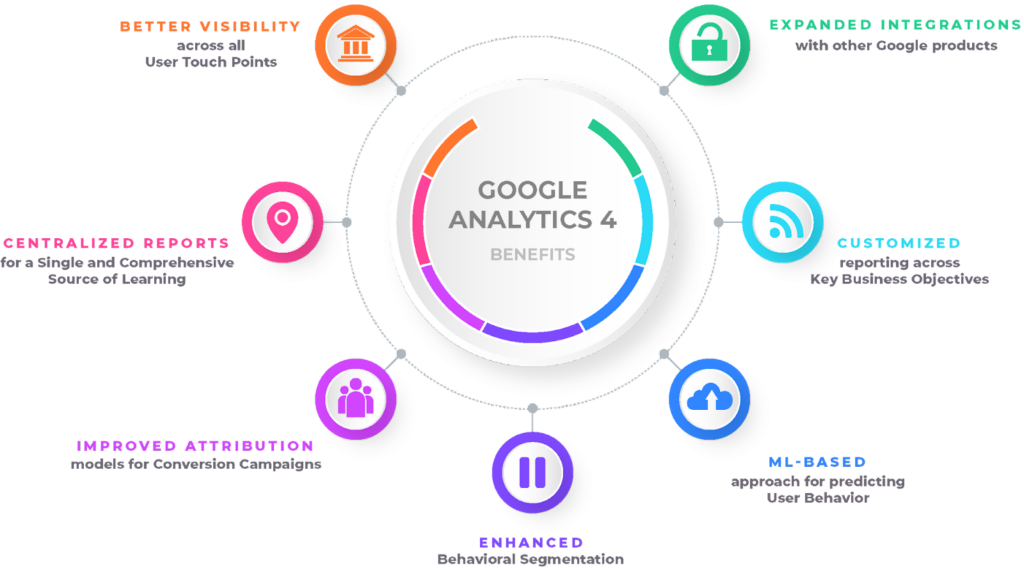Enhance Your Search Engine Optimization Strategy With Effective Google Analytics Tracking Code
Incorporating Google Analytics tracking code right into your SEO method is a crucial action towards accomplishing measurable outcomes. What details techniques can you embrace to maximize the impact of this information on your Search engine optimization initiatives?

Comprehending Google Analytics Fundamentals
To efficiently leverage Google Analytics for Search Engine Optimization, it is essential to comprehend its fundamental ideas. Google Analytics offers as an effective tool for tracking and evaluating site web traffic, giving understandings that are important for enhancing search engine efficiency. At its core, the system makes it possible for customers to check individual behavior, traffic resources, and crucial performance signs (KPIs) such as bounce rates and session periods.
Experience with the user interface is crucial. Key sections consist of the Target market, Procurement, and Behavior tabs, each supplying useful information. The Target market area provides group understandings, aiding to customize web content to target users properly. The Acquisition tab discloses just how visitors arrive at the website, whether with natural search, paid advertisements, or social networks, leading strategic changes in advertising initiatives.
Recognizing metrics such as natural traffic quantities and conversion rates is important for assessing search engine optimization performance. Eventually, understanding these basics allows digital marketing professionals to harness the full potential of Google Analytics, driving notified choices that improve total SEO approaches. By establishing a strong foundation, businesses can effectively evaluate their efficiency and recognize opportunities for enhancement in their online visibility.
Establishing Tracking Code
Appropriately establishing the monitoring code is vital for exact information collection in Google Analytics. The very first step includes creating a Google Analytics account and residential or commercial property, where you will certainly receive an unique tracking ID. This ID is important for linking your website's data to your Google Analytics account.
As soon as you have your tracking ID, incorporate the tracking code snippet right into your website's HTML. This is generally positioned in the header area of each web page to guarantee it lots early in the web page rendering procedure. If you're making use of a Web content Management System (CMS) like WordPress, numerous plugins streamline this procedure, permitting you to include the monitoring code without direct HTML editing.
After implementing the monitoring code, it is important to evaluate its functionality. If the monitoring code is correctly installed and functioning, you can make use of the Google Tag Aide tool to validate. In addition, keep track of the real-time reporting feature in Google Analytics to validate that data is being accumulated appropriately.
Making sure that the tracking code is properly established up lays the structure for effective information analysis, enabling you to make enlightened decisions to boost your SEO approach and general site performance.
Key Metrics to Monitor
Recognizing key metrics to check is essential for comprehending the effectiveness of your SEO technique through Google Analytics. By concentrating on certain information points, you can gauge the influence of your optimization initiatives and make notified choices to improve performance.
One of the primary metrics to track is organic traffic, which shows the variety of site visitors getting to your website through online search engine. This statistics mirrors the general wellness of your search engine optimization approach. Next, monitor the bounce price, which shows the percent of site visitors that leave your site after seeing just one web page. A high bounce rate may signify that your web content is not meeting user expectations or that your landing pages require improvement.
In addition, think about tracking conversion prices, as these metrics reveal how well your website satisfies its organization goals, such as creating leads or sales. Keyword phrase positions are additionally vital; monitoring adjustments in keyword positions helps assess the effectiveness of your targeted search engine optimization initiatives. Finally, assess the average session period, which suggests user involvement and content relevance. By carefully adhering to these essential metrics, you can gain valuable understandings into your search engine optimization strategy's efficiency and recognize areas for enhancement.
Analyzing Individual Behavior
Recognizing customer actions is crucial for improving your SEO technique and optimizing site performance. Google Analytics gives a wealth of data on customer engagement metrics, such as bounce rates, time on website, and page views per session.
In addition, tracking user flow can expose typical navigation courses, highlighting potential bottlenecks or areas for renovation. Understanding the demographics, rate of interests, and geographical places of your visitors permits more customized web content that talks to their needs. Using segmentation features in Google Analytics additionally improves your ability to examine customer behavior by enabling you to compare various audience groups.
Furthermore, checking conversion rates and individual activities can give insights right into the efficiency of your phone call to action and general site design. This all natural view of user actions is essential for making informed decisions that boost user experience and drive greater involvement, inevitably contributing to improved SEO performance.
Leveraging Insights for Search Engine Optimization
Constantly leveraging insights gained from individual actions analysis can substantially boost your SEO initiatives. By utilizing Google over at this website Analytics, you can determine crucial metrics such as bounce rates, session period, and user flow, which expose just how site visitors engage with your content. These understandings allow you to identify areas needing improvement, such as high leave web pages or underperforming search phrases.

Additionally, tracking natural web traffic sources gives clearness on which channels are try this website most efficient, allowing you to allocate resources strategically (when does the google analytics tracking code send an event hit to analytics?). By evaluating conversion prices along with website traffic information, you can recognize which pages drive actual service outcomes, improving your search engine optimization technique further
Including these insights into your material technique not just improves presence yet also cultivates an extra user-centric strategy. Ultimately, a data-driven search engine optimization method notified by analytics not just increases positions but additionally aligns your purposes with individual expectations, causing sustained development and interaction.
Conclusion
Efficient application of Google Analytics tracking code dramatically boosts a Search engine optimization method by supplying essential insights into user actions navigate to this website and website traffic resources. Ultimately, leveraging these insights contributes to improving Search engine optimization efforts, driving more relevant website traffic, and boosting general web site efficiency.
Including Google Analytics tracking code right into your SEO approach is an essential step towards accomplishing quantifiable outcomes. At its core, the platform enables customers to check individual habits, web traffic sources, and crucial efficiency signs (KPIs) such as bounce rates and session periods.
Recognizing customer actions is essential for improving your Search engine optimization strategy and taking full advantage of site efficiency.Consistently leveraging understandings gotten from individual behavior evaluation can substantially boost your Search engine optimization efforts.Efficient implementation of Google Analytics tracking code substantially enhances a Search engine optimization method by offering crucial insights into individual habits and website traffic sources.
Comments on “Necessary Insights on When Does the Google Analytics Tracking Code Send an Event Hit to Analytics for Accurate Coverage”